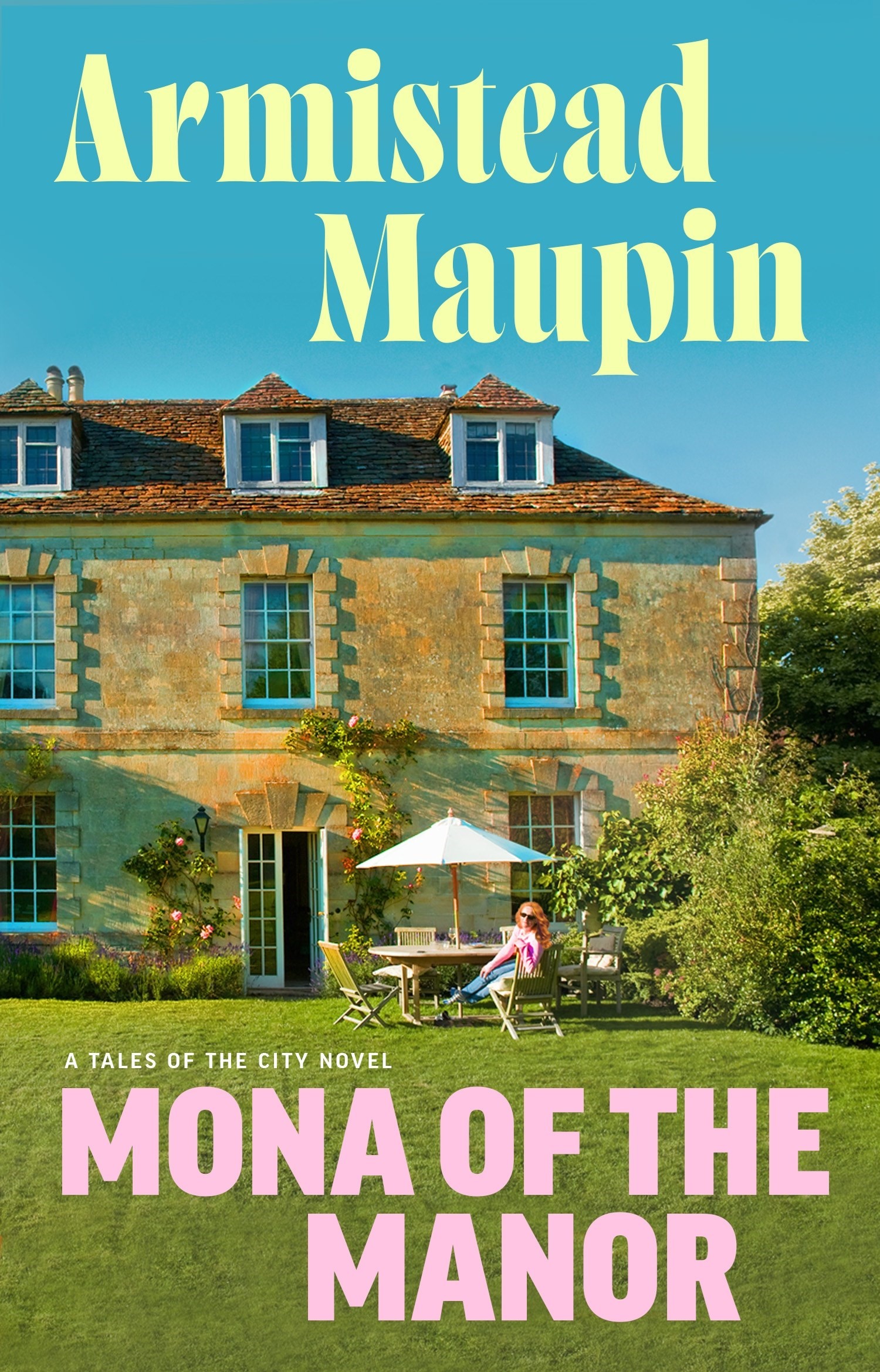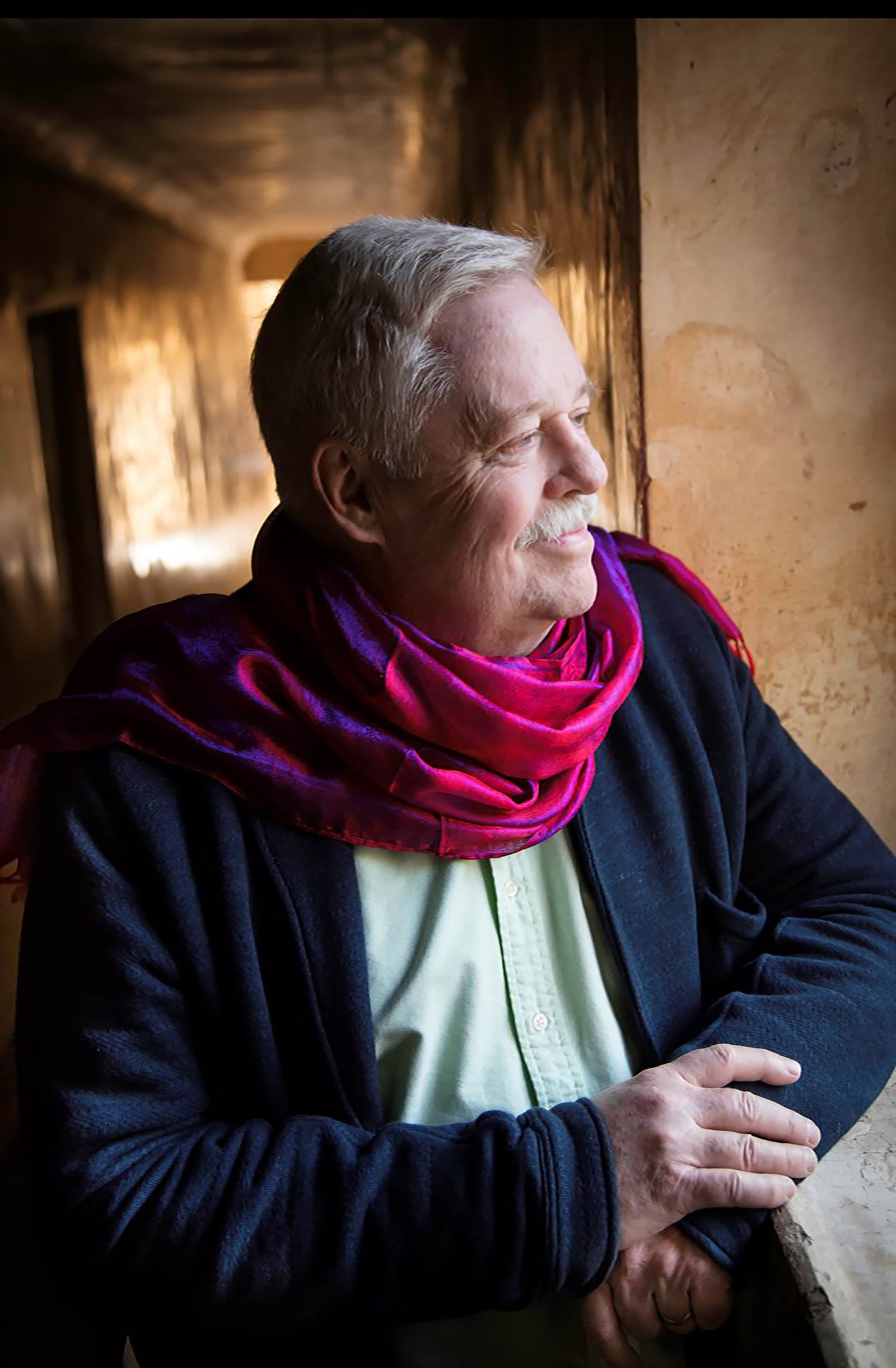Armistead Maupin is so synonymous with San Francisco that it initially feels discombobulating to visit him in Clapham, south-west London, even though he has lived here for five years. With his beloved and groundbreaking Tales of the City novels, the author helped to cement San Francisco’s reputation as a queer mecca where your new landlady might welcome you by taping a joint to your door. But his new Tales novel, Mona of the Manor, the tenth in the long-running series, is the first to be set entirely in England.
Fans will have gleaned from the title that Maupin’s latest centres on Mona Ramsey, the bohemian former ad agency copywriter who hasn’t featured in a Tales novel since 1989’s Sure of You. Set in the early 90s, Mona of the Manor finds her running a grand Cotswolds estate, Easley House, as a shabby-chic country house hotel. “People kept saying, ’What happened to her? You left her hanging,’“ Maupin says. “And so I thought, ’Well, I have the perfect opportunity to tell this story now that I live in London.’“

Raised in Raleigh, North Carolina, Maupin had English grandparents and has always been an Anglophile. The fourth Tales novel, 1984’s Babycakes, transposed the series’ gay hero Michael Tolliver to London while his friend Mary Ann Singleton reported feverishly on the Queen’s visit to California. But Maupin and his husband Christopher Turner decided to move to the UK permanently in 2019 because they were “worn out“ with their homeland. “We had an unimaginable president who shows every chance of becoming [president] again,“ Maupin says with a sigh. “I mean, you’ve had your bozos here – in the Tory party for the most part. But nothing is as bad as Trump. Because he has power; he’s leading legions of idiots.“
We’re sitting in the reception room of Maupin and Turner’s smart terraced house, where a bookshelf holds a street sign for Barbary Lane, the fictional San Francisco address that has been Tales of the City’s focal point since it began in the mid-70s. Maupin says he feels totally at home in London – he became a British citizen last year– and likes hanging out at his pal Ian McKellen’s pub The Grapes, and iconic LGBTQ+ venue the Royal Vauxhall Tavern. At 79, the author is warm, witty and mischievous. When I mention a minor gay icon who ruined her reputation by sharing transphobic views, he whispers conspiratorially: “She used to be cool!“
On the way to Maupin’s house, you’ll almost certainly pass Clapham Common, a vast green space that plays host to various recreational pursuits in the daytime, and others after dark. It’s easy to imagine Michael Tolliver swinging by to sunbathe (or otherwise) during a trip to London. However, it’s the city’s other great cruising ground, Hampstead Heath, that features in Mona of the Manor. The title character’s adopted son Wilfred – who first appears as a teenager in Babycakes, but is now a decade older – heads there and spots an iconic British pop star. “The nice part about that [cameo],“ Maupin says with a glint in his eye, not wishing to give too much away, “is that I’m sure he would approve“.
“I’m just disgusted by these people who call themselves feminists and set out to trash transgender people. And any queer who goes along with that is forgetting how the whole [LGBTQ+ rights] movement started“ – Armistead Maupin
Though most of the story unfolds at grand but dilapidated Easley, which Mona inherited following the death of her gay English husband, Lord Teddy Roughton, this is no starchy country house novel. After Wilfrid pays a visit to Old Compton Street in gay Soho, he notes that “the air seemed ripe with the promise of unspilled seed“. Tonally, Mona of the Manor sits somewhere between the early Tales novels, which have a punchy episodic structure honed when Maupin launched his fictional world as a 1974 newspaper serial, and his more reflective recent additions to the canon such as 2007’s Michael Tolliver Lives.
The new book includes other Maupin hallmarks such as an overarching criminal plotline and spot-on pop culture references: this is the early 90s, so of course Wilfred watches Absolutely Fabulous. Most hearteningly of all, it continues the unswerving LGBTQ+ inclusivity that the author has propagated since he made a trans woman, Barbary Lane’s resplendent landlady Anna Madrigal, the beating heart of the series. In Mona of the Manor, a main character crisply eviscerates the sort of half-baked transphobia that we now associate with gender-critical feminists.
“I’m just disgusted by these people who call themselves feminists and set out to trash transgender people,“ Maupin says today. “And any queer who goes along with that is forgetting how the whole [LGBTQ+ rights] movement started.“ Maupin says he realised the full extent of the problem when a British journalist told him that reconciling feminism with transgender rights is “a very complicated issue over here“. He rolls his eyes, then continues. “So I said, ’What’s complicated about it? Trans people either have a right to exist or they don’t.’ [The journalist] never got around to saying what I presume she meant, which is that she’s afraid of going into a public toilet and finding a trans woman. That’s about as sophisticated as the argument ever gets.“

Maupin has always championed the idea that LGBTQ+ people should support and uplift one another; he named his 2017 memoir Logical Family after an alternative phrase for the ’chosen family’ that queer people form outside of the biological unit. It’s one reason why Tales of the City has proved so enduring and influential: over the years, his novels have been adapted into several TV series and even a stage musical. “Though I didn’t know it at the time, I created characters that people want to come back to,“ he says. “That’s the most common compliment I get: that [each book] is like meeting old friends.“
For this reason, he is fully expecting “to get some complaints“ about declaring Mona of the Manor the last ever Tales novel. “I’ve gone back on my word before, but I do think I’m finished now,“ he says. “This is the tenth book, which is a nice symmetrical number to end on. This isn’t the end of the story – the end is [my 2014 novel] Anna Madrigal Lives, so this one’s in the middle, but it’s the last book.“ Though fans will be hoping he backtracks and decides to dip into the middle again, Maupin seems at peace with his decision. As the interview concludes, he asks politely: “Have I given you enough?“ He means for this article, but in all senses, I leave thinking that Maupin has given me, and all of us, so much more.
Mona of the Manor by Armistead Maupin is published by Doubleday, and is out now.
